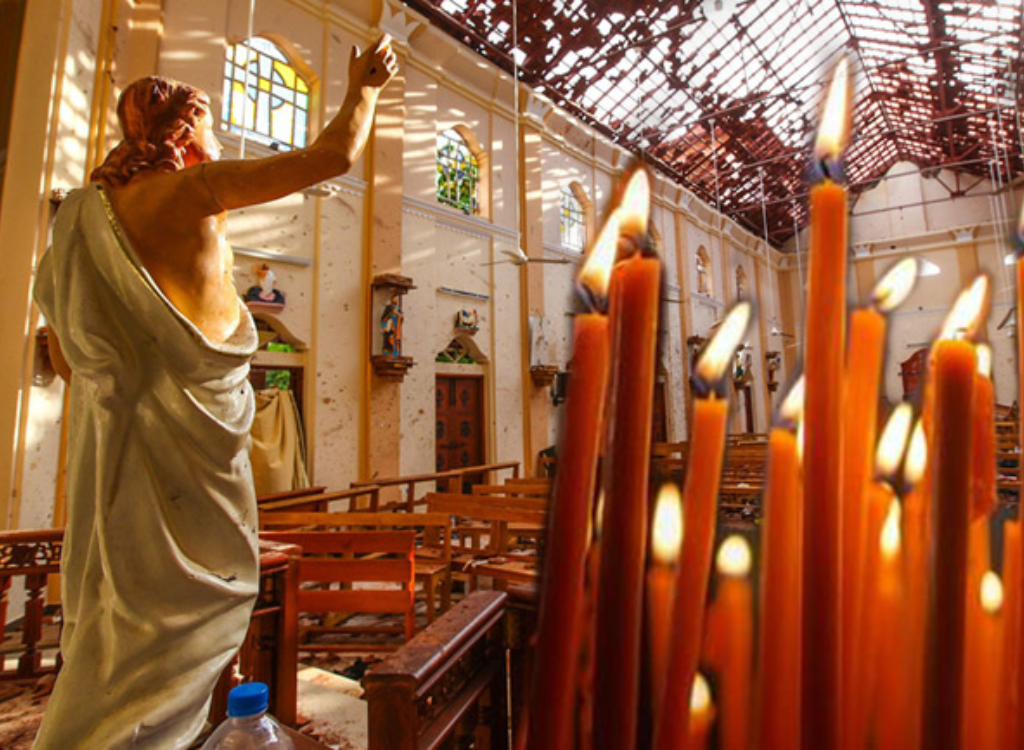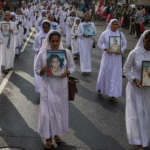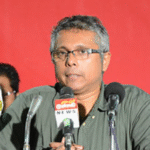On the solemn occasion of the sixth anniversary of the 2019 Easter Sunday bombings, a coalition of Muslim organizations in Sri Lanka has issued a joint statement, expressing deep sorrow for the victims while also raising serious concerns about the continued marginalization of the Muslim community in the aftermath of the tragedy.
Issuing a statement, Muslim leaders emphasized that the Easter attacks were not only heinous acts of terrorism, but also part of a broader, more insidious campaign to tarnish Islam and vilify Sri Lanka’s Muslim population. They reiterated that those who carried out the violence did not represent Islam, nor the values held by the country’s Muslim citizens.
“Today marks six years since the tragic Easter Sunday attacks that took place on 21 April 2019. We, Muslims in Sri Lanka, express our deepest condolences to the victims, their families, and all communities affected by this heinous act of terrorism, and reflect solemnly.
“We unequivocally condemn these horrific attacks. Those who committed these crimes do not represent Islam or the Muslim community. Their actions are a complete violation of the principles of our faith and the values we uphold. From the outset, the Muslim community, guided by religious scholars, rejected and condemned the perpetrators, and even denied them Islamic funeral rites as a firm expression of our revulsion,” the statement read.
The Muslim community, it said, has long been an integral part of Sri Lanka’s social and cultural fabric. “For over a thousand years, Muslims have lived in this land as loyal, peaceful, enterprising and contributing citizens. Our history in Sri Lanka is one of coexistence, loyal service and nation-building in times of both peace and hardship. Despite facing significant injustice, discrimination and stigmatization, we have always chosen the path of tolerance and peace, and have never responded with extremism or violence.”
The organizations emphasized that the Easter attacks must be understood not only in terms of terrorism, but as part of a conspiracy to isolate and marginalize Muslims in Sri Lanka. They called for the full truth to be revealed and for justice to be served—not through scapegoating, but by holding the true masterminds accountable.
“We call for the full truth to be revealed and for those truly responsible—not scapegoats—to be brought to justice. Justice delayed is justice denied. Six years later, it is unacceptable that the real perpetrators remain unidentified and the fundamental questions surrounding the attacks remain unanswered,” the statement said.
They also voiced strong concern over the prolonged detention of Muslim individuals under the Prevention of Terrorism Act (PTA) without charge or conviction, urging the government to bring all investigations to a transparent and credible conclusion without further delay.
Furthermore, the statement called for wider institutional reforms to break the cycles of violence, impunity, and injustice in Sri Lanka. It highlighted the suffering endured not only by Easter victims, but also by Tamils during the civil war, Sinhala youth during past insurrections, and Muslims targeted in violent incidents in Aluthgama, Gintota, Digana, and Minuwangoda, as well as during the forced cremation policy of COVID-19 victims.
“We renew our call for a meaningful transformation of the institutions, structures and political culture that have allowed cycles of violence and impunity to re-enter Sri Lanka. Justice must be served not only to the victims of Easter Sunday, but to all communities that have suffered injustice,” they added.
The Muslim organizations also expressed gratitude to Cardinal Malcolm Ranjith, the Catholic Church, and all those across religious and ethnic lines who opposed collective blame and stood for justice in the difficult months that followed.
“As a community, we are committed to moving forward – not as a marginalized group, but as equal and enlightened citizens of this country. We call on all Sri Lankans to reject division and suspicion, and to build trust and peace between communities,” the statement concluded.
They urged the nation to honor the memory of the victims not with more hatred or vengeance, but by building a future rooted in truth, justice, and dignity for all.











Leave a comment